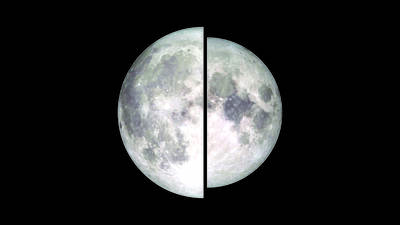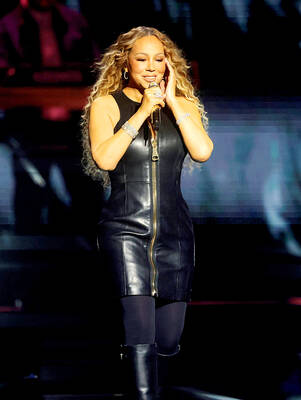Welcome to Sunday Science! Every Sunday during the summer, we’re going to guide you through some cool experiments that you can do at home. It’s a good idea for you to keep a record of what you do in a Science Journal. That way you can record what you learn, compare results and maybe use them to design new experiments! Have a look at the Science Journal box for some ideas to get you started. Remember to always ask a grown-up’s permission before trying out an experiment.
歡迎閱讀《週日科學版》!在暑假期間,我們每週日都要為你介紹可以在家中進行的有趣科學實驗。你可以在《科學日誌》中記錄自己做了哪些活動,這樣就可以將所學的紀錄下來,比較這些結果,也許還可以利用它們來設計新的實驗!先看一下《科學日誌》的點子再開始吧。展開實驗之前,記得要獲得大人許可喔!
Making a volcano 動手作火山
What you will need:
An empty water bottle
Bicarbonate of soda (baking soda)
Vinegar
Dish soap
Food coloring (red)
A tray (to put everything on)
A cup or pouring jug
A spoon
A funnel (if you don’t have one at home, you can make one from cardboard covered with tinfoil or use a pouring jug to add the ingredients)
Some sand or modeling clay (optional)
Glitter (optional)
Old Newspaper
* Place the newspaper over your working surface.
* Put the tray on the newspaper. Put your empty bottle in the middle of the tray and put the funnel in the neck of the bottle.
* Use the spoon to put baking soda in the bottle. Put in enough to cover the bottom of the bottle well. If you are using glitter add this too.
* If you are using sand or modeling clay, shape it around the bottle (to about 3/4 of the way up) to make it look like a volcano or mountain.
* In the cup or jug combine 1/4 cup of vinegar, two big drops of dish soap and a couple of drops of food coloring (be careful food coloring can stain clothes).
* Pour the mixture into the bottle and watch what happens!
Don’t forget to record what happens in your Science Journal.
所需材料︰
一只空水瓶
小蘇打粉
醋
洗碗精
紅色食用色素
一只托盤(大小需足以放置所有東西)
一只杯子(或是有傾倒口的量杯)
一個湯匙
一只漏斗(假如家裡沒有漏斗,你可以用鋁箔包住厚紙板來自己做一個,或是用量杯來添加材料)
沙子或塑形用黏土(非必要)
亮片(非必要)
舊報紙
* 在工作檯面鋪一張舊報紙。
* 把托盤放在報紙上。將一只空瓶子放在托盤中央,並把漏斗架在瓶子上。
* 用湯匙將小蘇打粉加入瓶內,數量要足以覆蓋整個瓶底。假如你有亮片,也可以在這時加進來。
* 假如你有沙子或黏土,將它們包住瓶子四周(約瓶高的四分之三),讓瓶子看起來宛如火山或高山。
* 在杯子或量杯中放入四分之一杯的醋、兩大滴洗碗精,與幾滴紅色色素(小心別讓色素弄髒衣服)。
* 把這些東西倒入瓶內,看看會發生什麼事!
別忘了將實驗結果紀錄在《科學日誌》喔。
(翻譯︰賴美君)

Have you ever gazed at the night sky and felt as though the Moon loomed larger than usual? Your eyes were not deceiving you. The Moon’s apparent size can __1__ subtly depending on where it is in its orbit. On certain occasions, it reaches its fullest phase while at its closest point to Earth. When these two events __2__, scientists and the public refer to the spectacle as a “supermoon.” The Moon does not orbit our planet in a perfect circle. Instead, it travels along a more oval-shaped __3__, completing one full orbit every 27 days. Consequently, there are times when

A: South Korea’s Golden Disc Awards ceremony is taking place at the Taipei Dome on Saturday. Eighteen acts are taking to the stage, including Blackpink’s Jennie. B: The hottest boy group CORTIS is also performing. I can’t wait to see James, the Taiwanese member of the band, perform. A: Who else are playing at the K-pop show? B: This year’s lineup is stacked, including: Allday Project, ARrC, Ateez, Boynextdoor, Close Your Eyes, Enhypen, IVE, Izna, KiiiKiii, Le Sserafim, Monsta X, NCT Wish, Stray Kids, TWS, Zerobaseone and Zozazz. A: SKZ, Enhypen and Ateez dominated Billboard’s 2025 Year-End World

A: Aside from K-pop, what were the English chart-toppers? B: Billboard’s top three singles for 2025 were “Die with a Smile” by Lady Gaga/Bruno Mars, “Luther” by Kendrick Lamar/SZA and “A Bar Song (Tipsy)” by Shaboozey. Plus, pop diva Mariah Carey’s 1994 megahit “All I Want for Christmas Is You” won its 20th and 21st weeks at No. 1, becoming the longest-running No. 1 song in history, A: How about in Taiwan? The news says nine of the 10 most-streamed songs on Spotify Taiwan were Korean. B: Yup, and the top three were: “Winter Ahead” by BTS’ V and Park

AI-generated summaries are shaking up the media world. Tools like Google’s AI Overviews now provide users with direct answers above the search results, resulting in fewer people clicking on news links. For publishers who rely on that traffic to generate advertising revenue, this shift is hitting hard. The fallout is measurable. Many sites have seen a sharp drop in traffic since AI summary features rolled out. An analysis revealed that a news outlet that had once ranked first on Google lost up to 79% of its traffic when its link appeared beneath an AI-generated summary. Statistics also show that